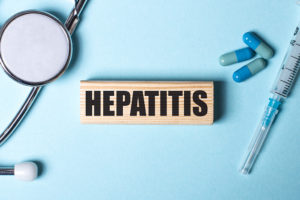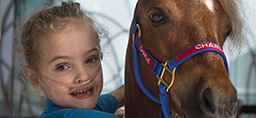
Hepatitis cases in children have increased recently across the U.S., but currently there are only two such cases under investigation in Michigan.
While there isn’t much reason for concern just yet, you should keep an eye on your kids if they develop specific symptoms, said Rosemary Olivero, MD, pediatric infectious disease specialist with Spectrum Health Helen DeVos Children’s Hospital.
In children with severe symptoms, doctors are seeing elevated liver enzymes due to an inflamed liver or, in rare instances, liver failure.
The Centers for Disease Control and Prevention has issued a new alert and is monitoring more than 100 cases across the U.S.
“We are seeing this mostly in younger children ages 1 to 6 years old,” Dr. Olivero said. “At Helen DeVos Children’s Hospital, we care for nearly half the state of Michigan. It is quite possible we will have severe cases of hepatitis here at some point.”
If a child shows signs of hepatitis, doctors will do the appropriate labs and testing to see if a strain of adenovirus, a common respiratory virus, might be the cause of liver inflammation, Dr. Olivero said.
She answered some of the most common questions about the condition and offered advice for parents.
What is causing this new symptom with hepatitis?
“The most likely viral cause of this is a strain of adenovirus, a very contagious and common virus that spreads in waves throughout the year,” Dr. Olivero said. “It can cause the common cold, pink eye, vomiting, diarrhea or pneumonia, and can also cause high fever—and that can last for quite some time. One other thing this virus can cause is elevated liver enzymes.”
Viruses move in waves across the country, so it certainly is possible this virus is among us right now, she said.
She offers a note of reassurance for parents: The same virus will not affect every child the same way.
“There is an interplay on how the body responds to a virus, and it won’t always present in hepatitis with severe liver outcomes,” she said.
She also noted that COVID-19 is another virus that can cause elevated liver enzymes. She does not believe, however, that the two are linked in this recent influx of hepatitis.
How worried should parents be?
“I would not be overly anxious,” Dr. Olivero said. “We are heading into the time of year where we will see less viral infections, as we will be outdoors and not in close proximity to others for long periods indoors.”
She also said this disease appears to be extremely rare at this point, with only approximately 100 cases across the U.S. right now.
What signs and symptoms should parents watch for?
“Simply put, hepatitis is inflammation of the liver,” Dr. Olivero said. “The virus has an effect on the liver that will cause abdominal pain on the right side of the abdomen.”
In children, watch for a loss of appetite, diarrhea or vomiting, or any yellowing of the skin or yellowing in the whites of the eyes. Fever is also quite common in these cases, she said.
How can parents and children avoid getting sick?
“Stay away from others who are sick,” Dr. Olivero said. “If you know someone who has a fever or cold, goopy eyes or goopy nose, avoid contact with them.”
She also stressed the importance of good hand hygiene.
“Wash your hands and wipe down your grocery cart before shopping,” she said. “We’re still amidst the COVID-19 pandemic, and the precautions we used to stay healthy will work for many viruses.”
What does life look like after having hepatitis?
“Acute viral hepatitis is usually reversible,” Dr. Olivero said. “However, if the liver isn’t functioning properly, your child would likely need to be in the hospital until the liver recovers.”
She said the liver is an underappreciated organ in the body. It works as the cleaner of the bloodstream and metabolizes many things we put in our bodies. It also makes clotting factors for blood if you suffer a cut.
“Very rarely would a case be irreversible where a liver transplant might be needed,” she said.
 /a>
/a>
 /a>
/a>
 /a>
/a>